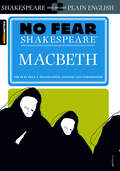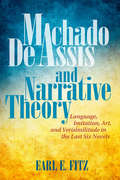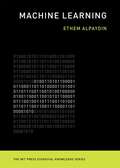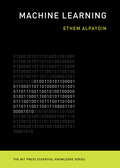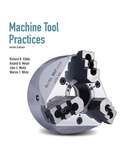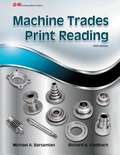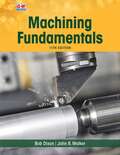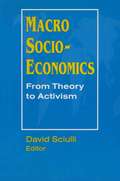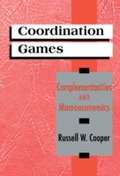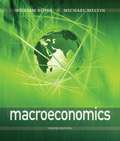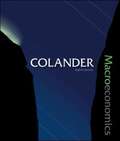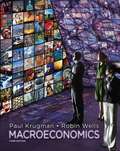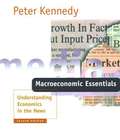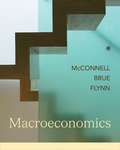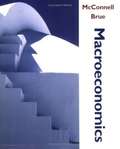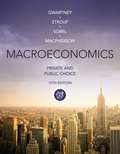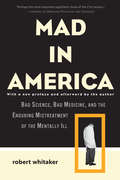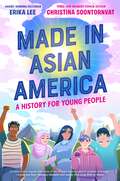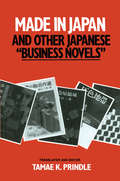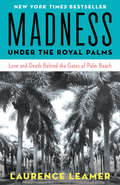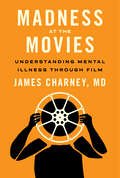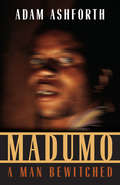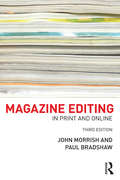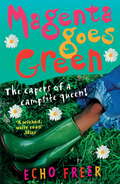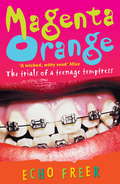- Table View
- List View
Macbeth: No Fear Shakespeare Side-by-Side Plain English (No Fear Shakespeare)
by William Shakespeare SparkNotesThis No Fear Shakespeare ebook gives you the complete text of Macbeth and an easy-to-understand translation.Each No Fear Shakespeare containsThe complete text of the original playA line-by-line translation that puts Shakespeare into everyday languageA complete list of characters with descriptionsPlenty of helpful commentary
Machado de Assis and Narrative Theory: Language, Imitation, Art, and Verisimilitude in the Last Six Novels (Bucknell Studies in Latin American Literature and Theory)
by Earl E. FitzThis book makes the argument that Machado de Assis, hailed as one of Latin American literature’s greatest writers, was also a major theoretician of the modern novel form. Steeped in the works of Western literature and an imaginative reader of French Symbolist poetry, Machado creates, between 1880 and 1908, a “new narrative,” one that will presage the groundbreaking theories of Swiss linguist Ferdinand de Saussure by showing how even the language of narrative cannot escape being elusive and ambiguous in terms of meaning. It is from this discovery about the nature of language as a self-referential semiotic system that Machado crafts his “new narrative.” Long celebrated in Brazil as a dazzlingly original writer, Machado has struggled to gain respect and attention outside the Luso-Brazilian ken. He is the epitome of the “outsider” or “marginal,” the iconoclastic and wildly innovative genius who hails from a culture rarely studied in the Western literary hierarchy and so consigned to the status of “eccentric.” Had the Brazilian master written not in Portuguese but English, French, or German, he would today be regarded as one of the true exemplars of the modern novel, in expression as well as in theory. Published by Bucknell University Press. Distributed worldwide by Rutgers University Press.
Machine Learning: The New AI
by Ethem AlpaydinToday, machine learning underlies a range of applications we use every day, from product recommendations to voice recognition -- as well as some we don't yet use everyday, including driverless cars. It is the basis of the new approach in computing where we do not write programs but collect data; the idea is to learn the algorithms for the tasks automatically from data. As computing devices grow more ubiquitous, a larger part of our lives and work is recorded digitally, and as "Big Data" has gotten bigger, the theory of machine learning -- the foundation of efforts to process that data into knowledge -- has also advanced. In this book, machine learning expert Ethem Alpaydin offers a concise overview of the subject for the general reader, describing its evolution, explaining important learning algorithms, and presenting example applications.Alpaydin offers an account of how digital technology advanced from number-crunching mainframes to mobile devices, putting today's machine learning boom in context. He describes the basics of machine learning and some applications; the use of machine learning algorithms for pattern recognition; artificial neural networks inspired by the human brain; algorithms that learn associations between instances, with such applications as customer segmentation and learning recommendations; and reinforcement learning, when an autonomous agent learns act so as to maximize reward and minimize penalty. Alpaydin then considers some future directions for machine learning and the new field of "data science," and discusses the ethical and legal implications for data privacy and security.
Machine Learning: The New AI (The MIT Press Essential Knowledge Series)
by Ethem AlpaydinA concise overview of machine learning—computer programs that learn from data—which underlies applications that include recommendation systems, face recognition, and driverless cars. Today, machine learning underlies a range of applications we use every day, from product recommendations to voice recognition—as well as some we don't yet use everyday, including driverless cars. It is the basis of the new approach in computing where we do not write programs but collect data; the idea is to learn the algorithms for the tasks automatically from data. As computing devices grow more ubiquitous, a larger part of our lives and work is recorded digitally, and as “Big Data” has gotten bigger, the theory of machine learning—the foundation of efforts to process that data into knowledge—has also advanced. In this book, machine learning expert Ethem Alpaydin offers a concise overview of the subject for the general reader, describing its evolution, explaining important learning algorithms, and presenting example applications. Alpaydin offers an account of how digital technology advanced from number-crunching mainframes to mobile devices, putting today's machine learning boom in context. He describes the basics of machine learning and some applications; the use of machine learning algorithms for pattern recognition; artificial neural networks inspired by the human brain; algorithms that learn associations between instances, with such applications as customer segmentation and learning recommendations; and reinforcement learning, when an autonomous agent learns act so as to maximize reward and minimize penalty. Alpaydin then considers some future directions for machine learning and the new field of “data science,” and discusses the ethical and legal implications for data privacy and security.
Machine Tool Practices (Ninth Edition)
by Richard R. Kibbe Roland O. Meyer John E. Neely Warren T. WhiteThis book features a richly illustrated, intensely visual treatment of basic machine tool technology and related subjects, including measurement and tools, reading drawings, mechanical hardware, hand tools, metallurgy, and the essentials of CNC (Computer Numerical Control) .
Machine Trades Print Reading, Fifth Edition
by Michael A. Barsamian Richard A. GizelbachMachine Trades Print Reading allows you to develop the basic skills required for visualizing and interpreting industrial prints. The text consists of 13 units. The first four units give you the basics of print reading. Units 5 through 12 deal with industrial prints. Unit 13 is a collection of prints with quiz questions that review all of the material presented in the text.
Machining Fundamentals
by Bob Dixon John R. WalkerMachining Fundamentals is a comprehensive text that offers a clear, easy-to-understand introduction to the various machining operations, setups, and procedures, providing an outstanding value for introductory courses. With a strong emphasis on safety, this colorful and detailed textbook covers all traditional machining methods, as well as newer and nontraditional methods. This edition aligns to the NIMS Machining Smart Standards and includes updated coverage of geometric dimensioning and tolerancing to reflect the ASME Y14.5-2018 standard. It features updated illustrations, new end-of-chapter review questions, and enhanced lesson plans.
Macro Socio-economics: From Theory to Activism
by David SciulliContributors to this volume respond to the normative capsule framing economic behaviour that Amitai Etzioni has explored. The text also looks at his works on organisations, public policy, socio-economics and communitarianism.
Macroeconomics
by Russell Cooper A. Andrew JohnThis book studies the implications of macroeconomic complementarities for aggregate behavior. The presentation is intended to introduce Ph. D. students into this sub-field of macroeconomics and to serve as a reference for more advanced scholars. The initial sections of the book cover the basic framework of complementarities and provide a discussion of the experimental evidence on the outcome of coordination games. The subsequent sections of the book investigate applications of these ideas for macroeconomics. The topics Professor Cooper explores include: economies with production complementarities, search models, imperfectly competitive product markets, models of timing and delay and the role of government in resolving and creating coordination problems.
Macroeconomics
by William Boyes Michael MelvinDiscover the latest thinking of today's economists on important macroeconomic phenomena while developing a solid global understanding of macroeconomic principles with MACROECONOMICS, 9E. This book clearly illustrates the connections between key macroeconomic principles and today's actual business practices using a reader-friendly approach, memorable examples, and unique global emphasis. The latest macroeconomic statistics and developments as well as new coverage of recent events, such as the financial crisis and its global implications, ensure readers are familiar with contemporary applications of concepts. Proven learning tools and accompanying technology help clarify the macroeconomics concepts and applications that are most important for today's career and business success.
Macroeconomics (8th Edition)
by David C. ColanderWritten in an informal colloquial style, this student-friendly Macroeconomics textbook does not sacrifice intellectual depth in its quest for accessibility. The author's primary concern is to instill "economic sensibility" in the student. Colander emphasizes the intellectual and historical context to which the economic models are applied. Distinguishing features found within Colander's text are: Cutting Edge and Modern Colloquial Style, Narrative Focus on Policy, Emphasis on the Importance of Institutions and History, Focus on Modeling. Economics is a method of reasoning, not truths. Presents Alternative Perspectives in Economics.
Macroeconomics (Third Edition)
by Paul Krugman Robin WellsWhen it comes to explaining current economic conditions, there is no economist readers trust more than New York Times columnist and Nobel laureate Paul Krugman. Term after term, Krugman is earning that same level of trust in the classroom, with more and more instructors introducing students to the fundamental principles of economics via Krugman's signature storytelling style. The new Third Edition of Paul Krugman and Robin Wells's Economics is their most accomplished yet--extensively updated to offer new examples and stories, new case studies from the business world, and expert coverage of the ongoing financial crisis.
Macroeconomics Essentials: Understanding Economics in the News (Second Edition)
by Peter KennedyWhat do we want our students to be able to do upon completing an introductory course in macroeconomics--shift curves on diagrams or interpret media commentary on the economy? This book, an effort to lead students in the latter direction, offers a clear exposition of introductory macroeconomic theory along with more than 600 one- or two-sentence "news clips" that serve as illustrations and exercises. The author calls this approach "media economics" to distinguish it from the encyclopedic character of traditional texts. The book provides a guide to what the author calls the "really important" ideas of macroeconomics, with a strong connection to the real world. Thus many instructors will find the book suitable for use in courses enrolling business students. The method of presentation allows room for topics that are crucial for the interpretation of news commentary, but given inadequate coverage in traditional macroeconomics texts. Examples include the many roles of nominal versus real interest rates, and international phenomena such as purchasing power parity. Despite its nontechnical presentation, the material in the book is quite challenging for students; to answer questions based on the news clips, students must truly understand the economic concepts and apply problem-solving skills rather than rote learning. This text, unlike other economic texts, provides the student with a practical yet sophisticated grasp of the macroeconomic principles necessary to interpret media commentary. The second edition has been revised and updated throughout.
Macroeconomics: Principles, Problems, and Policies (18th Edition)
by Campbell R. Mcconnell Stanley L. Brue Sean M. FlynnThis book elaborates on the principles essential for understanding the economizing problem, specific economic issues, and the policy alternatives and helps to apply the economic perspective.
Macroeconomics: Principles, Problems, and Policies (Sixteenth Edition)
by Stanley L. Brue Campbell McconnellRevisions of previous books by the authors on macroeconomics and microeconomics. They have been updated to reflect the latest developments in economics. They feature a fully integrated global perspective and a new design and art programme.
Macroeconomics: Private and Public Choice (15th Edition)
by James D. Gwartney David A. Macpherson Russell S. Sobel Richard L. StroupMACROECONOMICS: PRIVATE AND PUBLIC CHOICE, Fifteenth Edition, reflects current economic conditions, enabling students to apply economic concepts to the world around them, and includes a robust set of online multimedia learning tools.
Mad in America: Bad Science, Bad Medicine, and the Enduring Mistreatment of the Mentally Ill
by Robert WhitakerSchizophrenics in the United States currently fare worse than patients in the world's poorest countries. In Mad in America, medical journalist Robert Whitaker argues that modern treatments for the severely mentally ill are just old medicine in new bottles, and that we as a society are deeply deluded about their efficacy. The widespread use of lobotomies in the 1920s and 1930s gave way in the 1950s to electroshock and a wave of new drugs. In what is perhaps Whitaker's most damning revelation, Mad in America examines how drug companies in the 1980s and 1990s skewed their studies to prove that new antipsychotic drugs were more effective than the old, while keeping patients in the dark about dangerous side effects. A haunting, deeply compassionate book--now revised with a new introduction--Mad in America raises important questions about our obligations to the mad, the meaning of "insanity," and what we value most about the human mind.
Made in Asian America: A History for Young People
by Erika Lee Christina SoontornvatFrom three-time Newbery Honoree Christina Soontornvat and award-winning historian Erika Lee comes a middle grade nonfiction that shines a light on the generations of Asian Americans who have transformed the United States and who continue to shape what it means to be American.Asian American history is not made up of one single story. It’s many. And it’s a story that too often goes untold. It begins centuries before America even exists as a nation. It is connected to the histories of Western conquest and colonialism. It’s a story of migration; of people and families crossing the Pacific Ocean in search of escape, opportunity, and new beginnings.It is also the story of race and racism. Of being labeled an immigrant invasion, unfit to become citizens, and being banned, deported, and incarcerated. Of being blamed for bringing diseases into the country.It is also a story of bravery and hope. It is the story of heroes who fought for equality in the courts, on the streets, and in the schools, and who continue to fight in solidarity with others doing the same.This book is a stirring account of the ordinary people and extraordinary acts that made Asian America and the young people who are remaking America today.
Made in Japan and Other Japanese Business Novels
by Tamae K. PrindleThe term "business novel" is a translation of the Japanese word kezai shosetsu, which may be translated literally as * 'economy novel.'' Critic Makoto Sataka first used the word "business" in place of "economy" in his monograph How to Read Business Novels (1980).l Business novels are "popular novels" (taishu bungaku) widely read by Japanese businessmen, their wives, students, and other professionals.. Business novels were recognized as a * 'field'' or a literary sub-genre in the late 1950s. It was Saburo Shiroyama's Export (Yushutsu) (1957), if not his Kinjo the Corporate Bouncer (Sokaiya Kinjo) (1959), which marshalled their enormous popularity. The seven short works in this collection represent prototypes of the business novel. Their distinctive features are that business activities motivate plot developments, although psycho-socio-cultural elements are tightly interwoven.
Madness Under the Royal Palms: Love and Death Behind the Gates of Palm Beach
by Laurence LeamerLove, lust, and fatal hatreds inside America's most exclusive enclave of wealth and privilege--Palm Beach.Bernard Madoff's Ponzi scheme devastated the eternally sunny world of Palm Beach, bringing down multimillionaires and destroying once-wealthy widows. The South Florida island and its rarified life suddenly found itself at the epicenter of the scandal, with this strange universe of wealth and privilege under an unrelenting spotlight.Now, in Madness Under the Royal Palms, Laurence Leamer shows us--as no one else has--this world of the megawealthy, which he calls "as hidden a place as I have ever resided." Digging deep, he hits a dark well of conflicting ambitions--right up to and including murder--much darker than the sky-blue weather and sunny Lily Pulitzer prints most of us associate with Palm Beach.
Madness at the Movies: Understanding Mental Illness through Film
by James CharneyA unique exploration of how mental illness is portrayed in classic and contemporary films.The study of classic and contemporary films can provide a powerful avenue to understand the experience of mental illness. In Madness at the Movies, James Charney, MD, a practicing psychiatrist and long-time cinephile, examines films that delve deeply into characters' inner worlds, and he analyzes moments that help define their particular mental illness. Based on the highly popular course that Charney taught at Yale University and the American University of Rome, Madness at the Movies introduces readers to films that may be new to them and encourages them to view these films in an entirely new way. Through films such as Psycho, Taxi Driver, Through a Glass Darkly, Night of the Hunter, A Woman Under the Influence, Ordinary People, and As Good As It Gets, Charney covers an array of disorders, including psychosis, paranoia, psychopathy, depression, bipolar disorder, obsessive-compulsive disorder, and anxiety. He examines how these films work to convey the essence of each illness. He also looks at how each film reflects the understanding of mental illness at the time it was released as well as the culture that shaped that understanding.Charney explains how to observe the behaviors displayed by characters in the films, paying close attention to signs of mental illness. He demonstrates that learning to read a film can be as absorbing as watching one. By viewing these films through the lens of mental health, readers can hone their observational skills and learn to assess the accuracy of depictions of mental illness in popular media.
Madumo: A Man Bewitched
by Adam AshforthThe author tells a story about his friend, a young man named Madumo, struggling to free himself from the curse of witchcraft in Soweto, South Africa. It is based upon shared experiences and taped conversations, interviews and discussions with others, journals, and letters.
Magazine Editing: In Print and Online
by Paul Bradshaw John MorrishIncluding comprehensive coverage on both print and online, consumer and free magazines, Magazine Editing looks at how magazines work and explains the dual role of the magazine editor. John Morrish and Paul Bradshaw consider the editor both as a journalist, having to provide information and entertainment for readers, and as a manager, expected to lead and supervise successfully the development of a magazine or periodical. Looking at the current state of the magazine market in the twenty-first century, the third edition explains how this has developed and changed in recent years, with specific attention paid to the explosion of apps, e-zines, online communities and magazine websites. Featuring case studies, interviews with successful editors, examples of covers and spreads, and useful tables and graphs, this book discusses the editor’s many roles and details the skills needed to run a publication. Magazine Editing offers practical guidance on: how to create an editorial strategy how to lead and manage an editorial team researching a market and finding new readers dealing with budgets and finance working with designers and production staff legal, technological and ethical dilemmas online distribution, social media and search engine optimisation managing information overload how to become an editor.
Magenta Goes Green
by Echo FreerMagenta's in trouble with Daniel again - this time, for snogging the school new-boy Chad Albright on a charity Blind Date. As if this wasn't bad enough, she's been picked to go on the school outward-bound camp. It's not really her cup of tea - mix Magenta with any physical activities, and here comes disaster ...
Magenta Orange
by Echo FreerCalamity seems to follow Magenta everywhere. Her neighbour, Daniel, tries to help but, inevitably, ends up inveigled into her schemes with hilarious results. Magenta has set her sights on Year 11 heart-throb, Adam Jordan, but all her attempts to impress him are thwarted by a series of mishaps. Adam is convinced she is a jinx and tries to avoid her at all costs - while Daniel spends his time trying to demonstrate his undying affection for Magenta - will the best man win?
